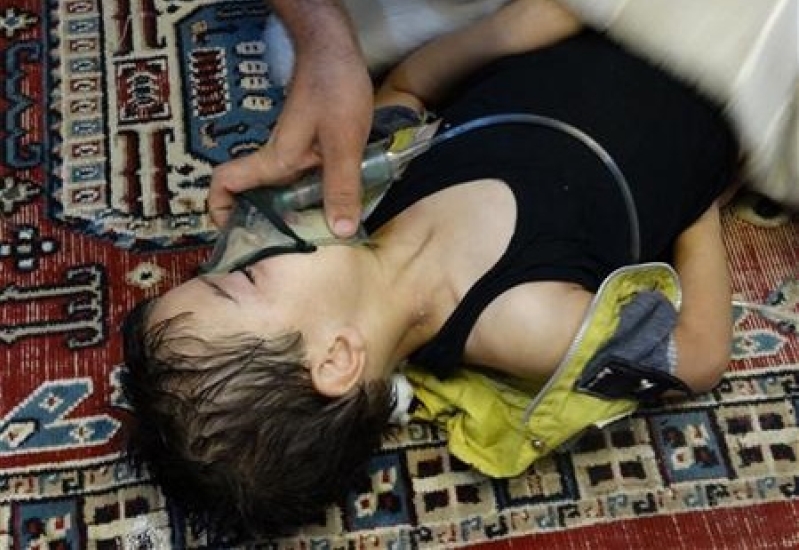
Hundreds of Syrians were killed early Wednesday morning in an alleged chemical weapons attack against the Syrian National Coalition in a suburb east of Damascus. President Bashar al-Assad's army denies that it used poisonous gas, however, and has suggested that rebel forces may have used chemical weapons themselves. The United Nations had arrived three days prior to lead an investigation of the ongoing civil war in the country.
Syria is one of few nations that are not a part of the international treaty that bans chemical weapons. The Syrian civil war suddenly escalated Wednesday morning with what might be considered the most deadly chemical weapons attack in history; although sources vary, as many as 1,300 people were killed in the attack, including women and children. Many are said to have died while in their homes.
Rebel forces say that the government attacked a suburb east of Damascus in the early morning, launching rockets filled with gas into the suburbs. While the investigation has only just begun, medical professionals have suggested that many of the victims are displaying symptoms which usually result from nerve gas exposure. According to Reuters, the Syrian government denied that they had used chemical weapons and called such allegations “illogical and fabricated.”
Because the U.N. had arrived in Syria just three days prior to the attack, some speculate that the rebel Syrian National Coalition is responsible for the alleged chemical weapons. Activists are accused of trying to cast a negative light on the Syrian government while the investigators from the United Nations were in the country; however, it is argued that the rebels would not have had access to poisonous gas. Many countries, including Assad’s allies, have requested that the United Nations investigate the allegations.
“This is a chance for the (U.N. inspectors) to see with their own eyes this massacre and know that this regime is a criminal one," said Syrian National Coalition leader Ahmed Jarba. United States President Barack Obama had previously warned the Syrian government that using chemical weapons would be crossing a “red line.” However, U.S. Gen. Martin Dempsey has said that the U.S. will not take military action as of yet, and believes that violence would continue even if Assad’s governance came to an end.
U.N. chemical weapons investigators have been dispatched to the area. White House spokesman Josh Earnest has concluded that the Syrian government out to help facilitate the investigation if it truly has “nothing to hide.”






